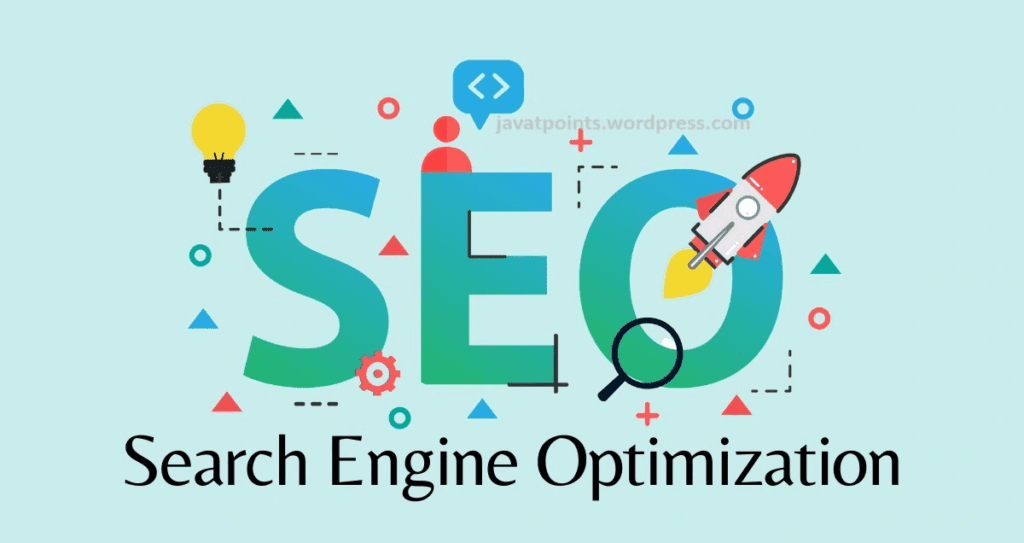
Search Engine Optimization (SEO) has become the cornerstone of digital marketing strategies for businesses across various industries. In today’s competitive online landscape, the power of SEO cannot be overstated. From improving website visibility to driving targeted traffic, SEO plays a pivotal role in achieving online success.
Understanding Search Engines
Before delving into the power of SEO, it’s essential to understand how search engines operate. Search engines like Google, Bing, and Yahoo use complex algorithms to index and rank web pages based on relevance and authority. Websites that optimize their content and structure according to these algorithms are more likely to rank higher in search engine results pages (SERPs).
The Impact of SEO
SEO has the power to significantly impact a website’s visibility and online presence. By implementing effective SEO techniques and strategies, businesses can increase their organic search traffic and reach a broader audience. With billions of searches conducted every day, ranking higher in search engine results can lead to increased brand exposure and more opportunities for engagement and conversions.
SEO Techniques and Strategies
Effective SEO involves a combination of on-page optimization, off-page optimization, and high-quality content creation. On-page optimization focuses on optimizing elements within a website, such as meta tags, headings, and internal links. Off-page optimization, on the other hand, involves building quality backlinks from reputable websites to improve a site’s authority and credibility.
Benefits of SEO
The benefits of SEO extend beyond just improving search engine rankings. One of the most significant advantages of SEO is its cost-effectiveness compared to traditional marketing methods. Additionally, SEO delivers long-term results, with properly optimized websites continuing to attract organic traffic over time. Moreover, SEO helps businesses target specific demographics and audiences, leading to higher conversion rates and better ROI.
SEO and User Experience
In addition to improving search engine rankings, SEO also enhances the overall user experience. Search engines prioritize websites that offer valuable and relevant content to users. By focusing on SEO best practices such as site speed optimization, mobile responsiveness, and intuitive navigation, businesses can create a positive user experience that encourages engagement and conversions.
Measuring SEO Success
Measuring the success of SEO efforts is crucial for optimizing strategies and achieving desired outcomes. Key performance indicators (KPIs) such as organic traffic, keyword rankings, and conversion rates help gauge the effectiveness of SEO campaigns. Utilizing tools like Google Analytics and Search Console provides valuable insights into website performance and areas for improvement.
Common SEO Mistakes to Avoid
While SEO can yield significant benefits, there are common mistakes that businesses should avoid. Keyword stuffing, for example, can lead to penalties from search engines and damage a website’s reputation. Neglecting mobile optimization can also result in poor user experience and lower search rankings. Furthermore, prioritizing quantity over quality when it comes to content can undermine SEO efforts and diminish credibility.
Adapting to Algorithm Changes
Search engine algorithms are constantly evolving, making it essential for businesses to stay updated with the latest trends and updates. Adapting to algorithm changes ensures that SEO strategies remain effective and aligned with search engine guidelines. By monitoring industry news and leveraging insights from reputable sources, businesses can adjust their SEO tactics accordingly and maintain a competitive edge.
The Future of SEO
As technology continues to advance, the future of SEO is likely to see further innovation and evolution. Emerging trends such as voice search, artificial intelligence, and user intent optimization are shaping the future of search engine optimization. Businesses that embrace these trends and prioritize user-centric strategies are poised to stay ahead of the curve and maximize their online visibility and success.
Conclusion
In conclusion, the power of SEO cannot be underestimated in today’s digital landscape. From increasing website visibility to enhancing user experience and driving targeted traffic, SEO offers numerous benefits for businesses of all sizes. By implementing effective SEO techniques and staying abreast of industry trends, businesses can unlock new opportunities for growth and success in the online realm.
FAQs
What is SEO, and why is it important?
SEO stands for Search Engine Optimization, and it’s crucial for improving a website’s visibility in search engine results, driving organic traffic, and increasing brand exposure.
How long does it take to see results from SEO?
The timeline for seeing results from SEO efforts can vary depending on factors such as the competitiveness of keywords, the quality of content, and the effectiveness of optimization strategies. Generally, it may take several weeks to months to see significant improvements in search rankings.
What are some common SEO mistakes to avoid?
Some common SEO mistakes to avoid include keyword stuffing, neglecting mobile optimization, and prioritizing quantity over quality when creating content.
How often should SEO strategies be updated?
SEO strategies should be regularly updated to adapt to changes in search engine algorithms and industry trends. Staying informed about updates and best practices ensures that SEO efforts remain effective and aligned with current standards.
What are some emerging trends in SEO?
Emerging trends in SEO include voice search optimization, artificial intelligence-driven algorithms, and a focus on user intent. Embracing these trends can help businesses stay competitive and improve their online visibility.



